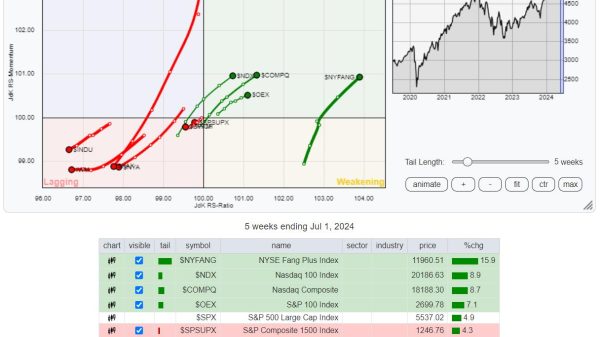There are two types of settlement: physical and cash.
The settlement process in an option contract depends on whether you own an American or European-style option contract. Before we talk about the specific mechanisms of these contracts, we need to clarify the two types of options contracts.
The Difference Between American and European Options
There are two styles of options in exchange-traded markets: European and American. Two fundamental properties distinguish the two:
The settlement style (cash-settled or physical settlement)
When the contracts can be exercised
What is an American Option Contract?
American option contracts have two unique properties when compared to European options:
American options use physical settlement
American options can be exercised at any time until the expiration date
What are European Options?
European options have two unique properties when compared to American options:
● European options use cash settlement
● European options can only be exercised at expiration
What is Physical Settlement in Options Trading?
A physically settled options contract settles for actual ownership of the underlying asset. For example, when you buy a call option on a stock like Apple or Microsoft, you will receive shares of the underlying stock should your call be in-the-money at expiration.
The catch here is that only American-style options contracts settle physically.
Nowadays, the only liquid options contracts that physically settle are options on US equities, as settling something like a wheat or crude oil contract would be far too cumbersome for most traders, given the burden of transporting and delivering potentially thousands of pounds of goods.
It’s critical to be aware of this crucial distinction when trading American-style options, as not knowing it can lead to some hiccups. For instance, if you own an American-style call option on, say, AAPL, and it’s in the money at expiration, you’ll be required to “take delivery” of those Apple shares.
Taking delivery, in this instance, would require you to buy the shares. So if you own a 120 AAPL call and AAPL is at 130 at expiration, you’d be required to buy 100 shares of AAPL at $120. Of course, because AAPL is trading at 130 in this scenario, you can turn around and sell them for a $10/share profit, but there’s an asterisk there.
Your broker has discretion if you need the margin in your account to support the purchase (or sale) to fulfill the assignment at the expiration time. They can fulfill the assignment (usually charging you a fee), then give you an immediate margin call, allowing them to sell your securities using a market order to fulfill the margin call. This can lead to a scenario where your deposits are sold out from under you to satisfy a margin call.
The situation gets direr because options assignment takes place after the market closes, meaning the bid and asks are typically super wide, especially for less liquid stocks. And they’ll also charge you a fee when they have to trade your account on your behalf in case of a margin call.
However, all of this is very avoidable. All you have to do is ensure you close your options positions before their expiration date. That can even mean minutes before the market closes on the expiration day. So long as you’re out of the position, you don’t have to deal with any of the politics of settlement, assignment, or expiration.
Early Assignment in Physically Settled Options
American-style options can be exercised at any time before the expiration date, in contrast to European options, which can only be settled at the expiration date.
As a result, American-style options are sometimes exercised early, in which the physical settlement begins immediately. While this is rare, it is likely to happen to an options trader at some point in their career and knowing how the process works beforehand is critical to reacting correctly.
The first thing to get straight is how option exercising works. Only the owner (holder) of an option can initiate an early exercise. This means that if you only buy puts and calls, you never have to worry about this being sprung on you.
However, as an active options trader, you’re likely utilizing several spread strategies involving buying and selling (shorting) options. In this case, there’s a remote chance you’ll face an early assignment.
Let’s look at an example to simplify things. If you receive an early assignment, you must deliver on half of the transaction. You’re short one 120 AAPL call that expires in 12 days. The holder of this option decides to exercise the option, and now the settlement process begins. AAPL is currently trading at 170.
At this point, you’re obligated to deliver 100 shares of AAPL at $120 per share. If you own the shares of AAPL, this is easy, your broker will transfer your shares of AAPL, and you’ll receive $120 per share.
However, if you don’t own the shares, you must purchase them in the open market for $170 per share and immediately deliver them to the holder, receiving $120/per share. You’d immediately realize a $50/share loss in this case.
If you don’t have the capital to fulfill this obligation, your broker will perform it on your behalf and give you a margin call.
So as you can see, getting an early assignment is never fun. But you’re in luck because it could be better for option holders to exercise their options early. In most cases, it makes far more sense for the holders to sell the opportunities in the options market, as exercising early means you lose out on any extrinsic value in the options market.
In other words, exercising options early almost always loses you money. But there is one situation where the risk of early assignment increases considerably: when the option is deep in the capital, and the ex-dividend date is near the expiration date.
This is because deep-in-the-money options have very little if any, extrinsic value as it is. So exercising early costs the holder little, but it allows them to capture the dividend.
How To Avoid Early Assignment
The best way to avoid early assignments is never to sell deep-in-the-money options. This is easy, as it rarely makes sense to do this as it is because, as an options seller, you’re looking for options with high extrinsic value–this is the premium you collect as a seller. If there’s no extrinsic value, you give someone free optionality.
Outside of some very specific edge-case, options traders don’t sell deep ITM options, so you don’t have to worry about missing out on anything. There’s rarely a case where it makes sense.
What is Cash Settlement in Options Trading?
Cash-settled options pay out the cash value of your choice at expiration instead of delivering shares or a physical commodity. Most exchange-traded opportunities are settled physically nowadays, as the burden of physical delivery, for, say, the S&P 500 index, would be too cumbersome, as it’d involve delivering the correct ratio of 500 different shares of stock. That burden multiplies when it comes to physical commodities like oil.
The only liquid options that still settle physically are US equity options, as delivering shares is relatively simple, as it’s just ones and zeros on a computer.
Let’s look at an example. You own one SPX (S&P 500 index) call at 3600. The index settles at 3650 at expiration. You’d receive $5,000 in cash at expiration, making your profit $5,000 minus the premium you paid for the option.
The proliferation of cash settlement in options trading has enabled the options market to become far more liquid and available to traders, speculators, and hedgers.
We have the primary difference between American and European options: their distinct settlement rules.
Related articles
How Index Options Settlement Works
Can Options Assignment Cause Margin Call?
Assignment Risks To Avoid
The Right To Exercise An Option?
Options Expiration: 6 Things To Know
Early Exercise: Call Options
Expiration Surprises To Avoid
Assignment And Exercise: The Mental Block
Should You Close Short Options On Expiration Friday?
Fear Of Options Assignment
Day Before Expiration Trading
Accurate Expiration Counting
Expiration Short Strategies


































